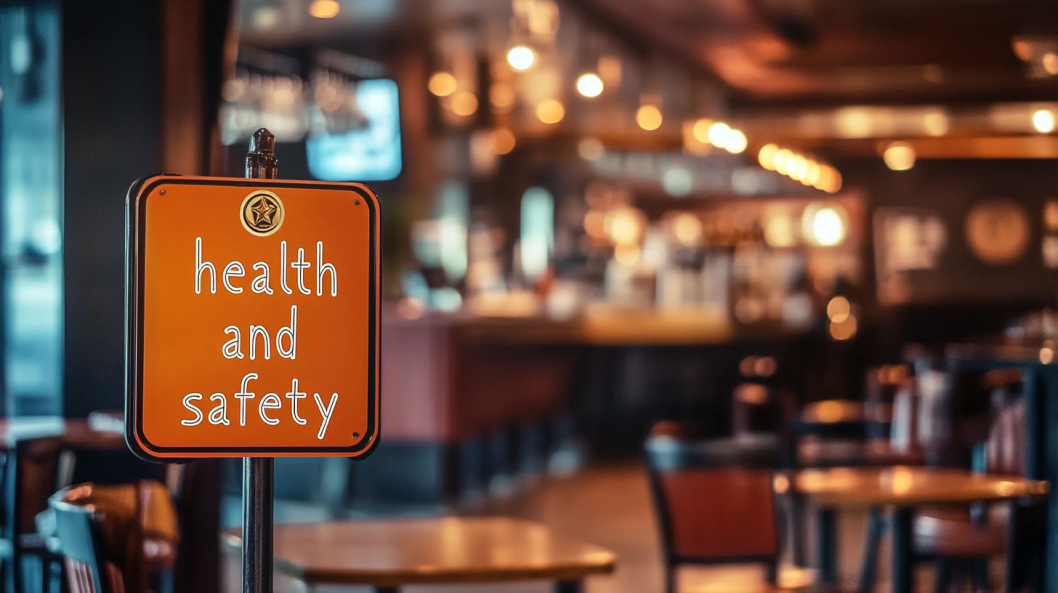The UK hospitality industry, comprising hotels, restaurants, pubs, and other venues, plays a crucial role in the nation’s economy. Prioritising the health and safety of employees and guests in this sector goes beyond regulatory compliance—it is essential for fostering trust, operational excellence, and long-term success. A thorough understanding and adherence to fundamental health and safety regulations are critical for creating a safe, welcoming, and compliant environment.
Health and safety experts emphasise the importance of alerting hospitality businesses to health and safety regulations. In the workplace health and safety hospitality industry, safeguarding the welfare of employees and guests is not only a legal obligation but also a cornerstone of building a strong reputation and fostering seamless operations. Ensuring safety in this sector requires a proactive approach to address unique risks and create an environment where both staff and guests feel secure and valued. This blog will explore the primary health and safety regulations that UK hospitality businesses must adhere to.
1. Health and Safety at Work Act 1974
At the heart of workplace safety in the UK is the Health and Safety at Work Act 1974. This foundational legislation requires employers to ensure, as far as reasonably practicable, all employees’ health, safety, and welfare. This includes maintaining safe working conditions, providing necessary training, and conducting risk assessments to identify and mitigate potential hazards in the hospitality industry.
2. The Management of Health and Safety at Work Regulations 1999
These regulations build on the Health and Safety at Work Act by setting out specific duties for managing health and safety. This includes conducting risk assessments, implementing health and safety policies, and appointing competent individuals to oversee health and safety matters for hospitality businesses. Regular reviews and updates of risk assessments are crucial to adapt to changes in operations or legislation.
3. The Regulatory Reform (Fire Safety) Order 2005
Fire safety is paramount in hospitality settings due to the high occupancy rates and fire hazards, such as kitchens and heating systems. The Regulatory Reform (Fire Safety) Order 2005 requires businesses to conduct fire risk assessments, implement fire safety measures, and ensure that staff are trained in fire safety procedures. Fire alarms, emergency lighting, and clear evacuation plans must be in place and regularly tested.
4. The Control of Substances Hazardous to Health (COSHH) Regulations 2002
COSHH regulations are critical for managing the risks associated with hazardous substances, such as cleaning agents, chemicals, and other potentially harmful materials used in hospitality settings. Businesses must assess these substances’ risks, implement appropriate control measures, and ensure employees are trained in safe handling and use.
5. The Manual Handling Operations Regulations 1992
Manual handling, including lifting, carrying, and moving items, is common in the hospitality industry. The Manual Handling Operations Regulations 1992 require employers to assess the risks associated with manual handling tasks and take measures to reduce the risk of injury. This includes providing training on proper lifting techniques and using equipment to aid in manual handling where necessary.
6. The Food Safety and Hygiene (England) Regulations 2013
Food safety is critical to hospitality operations, particularly in establishments that prepare and serve food. The Food Safety and Hygiene (England) Regulations 2013 stipulate that food businesses must ensure that food is prepared, stored, and served hygienically. This includes maintaining cleanliness, managing food storage temperatures, and ensuring staff are trained in food safety practices.
7. The Working Time Regulations 1998
The Working Time Regulations 1998 govern the maximum hours that employees can work and ensure that they receive adequate rest breaks and annual leave. In the hospitality industry, where shifts can be irregular and extended, adhering to these regulations is essential for preventing overwork and promoting employee well-being.
8. The Equality Act 2010
The Equality Act 2010 mandates that all employees and guests are treated fairly and without discrimination. In hospitality settings, this involves ensuring that policies and practices do not discriminate against individuals based on protected characteristics, such as age, disability, gender, race, or sexual orientation.
The hospitality industry’s commitment to health and safety must be steadfast and uncompromising. Navigating the complexities of a restaurant’s health and safety regulations can be challenging, but the rewards of rigorous compliance are significant. Adopting a proactive approach to health and safety ensures legal compliance and fosters a well-managed, reputable, and thriving business. By prioritising robust safety measures, aligning with specific regulatory requirements for restaurants, and investing in ongoing staff training, companies can achieve operational excellence while enhancing customer trust and satisfaction.





